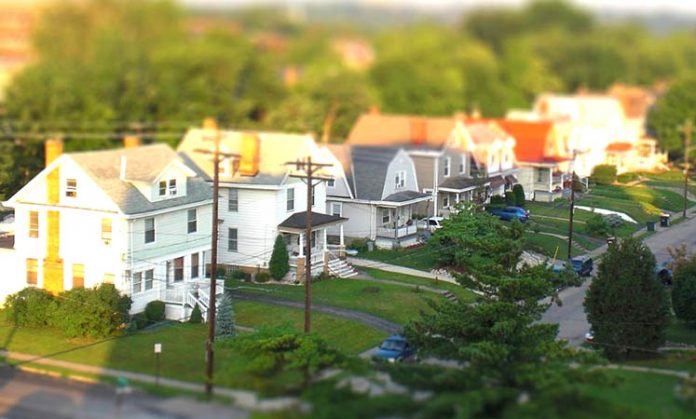By Stefanie Jackson – The Eastern Shore Regional Housing Coalition’s second annual conference, held online Sept. 25, focused on both finding affordable homes and keeping them, in light of the economic impacts of COVID-19.
“Affordable, safe, and accessible housing is the foundation of a great community, and it seems this is more evident than ever as we face the unprecedented COVID-19 pandemic,” said Erik Johnston, director of the Virginia Department of Housing and Community Development (DHCD).
He spoke on behalf of Gov. Ralph Northam, who recently proposed investing $88 million in state funding to “prevent evictions and expand access to affordable housing.”
A “historic investment” – about $85 million of the $88 million – would be put into the Virginia Housing Trust Fund, Johnston said.
The fund’s purpose is to reduce homelessness of vulnerable individuals and families who cannot afford safe and decent housing, disabled persons who need accessible housing, seniors on fixed incomes, and individuals with mental health issues.
Around $3.3 million would be designated for the Eviction Diversion Pilot Program that aims to create a “continuum of support” between tenants and landlords, legal aid, social services, and community-based organizations to prevent evictions, Johnston said.
The governor has also proposed a “pause” on evictions through Jan. 31, 2021.
The temporary ban on evictions would give tenants and landlords time to work out payment plans and take advantage of the Virginia Rent and Mortgage Relief Program that was launched in June with $50 million in Coronavirus Aid, Relief, and Economic Security Act funds.
The program can cover rent and mortgage payments that were past due as of April 1 or later.
The Virginia Rent and Mortgage Relief Program has made more than $7.2 million in housing payments as of Sept. 9.
It has highlighted how racial minorities have been disproportionately affected by COVID-19 and housing insecurity. The Black community makes up just 19% of Virginia’s population, but 52% of participants in the rent and mortgage relief program, Johnston said.
Accomack and Northampton County combined have about 6,100 renters and 12,500 homeowners.
Landlords can also apply to the program on behalf of their tenants, Johnston added.
Renters and homeowners may dial 2-1-1 for more information about the Virginia Rent and Mortgage Relief Program.
Additional resources for homeowners, renters, landlords, and the homeless can be found at stayhomevirginia.com
Accomack supervisor Reneta Major noted that the Accomack-Northampton Planning District Commission (A-NPDC) also has a rent and mortgage program, to which Accomack County is contributing $100,000 of its CARES Act funds.
The contribution will enable A-NPDC to expand the gross household income limit for program eligibility, from 80% of the area median income to 150% of the area median income, meaning more families will be eligible for assistance.
Congresswoman Elaine Luria is working to get a U.S. Department of Agriculture representative for the Eastern Shore. (The USDA Rural Development program helps low and very-low-income families obtain affordable home loans.)
The Eastern Shore had a USDA representative who retired and was never replaced, Luria said. USDA recently notified her that it would have a plan by the end of September to fill the vacant position.
Luria also supports the Southeast Crescent Regional Commission, created by Congress in 2008 to provide federal funds to address rural poverty in a seven-state region that includes Virginia.
The commission never became active because it lacked a co-chair, who had to be nominated by the U.S. President and confirmed by the Senate.
Congress had authorized $30 million for the project, which was later reduced to $250,000 a year, but there was no active commission to spend any of the money.
Luria emphasized the need for the current or future presidential administration to prioritize the commission and rural poverty in the region.



